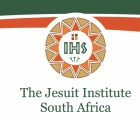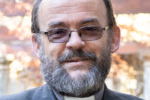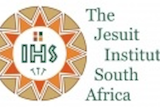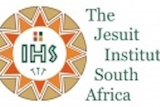Reflection from South Africa: Dare to think

Source: The Jesuit Institute South Africa
The famous American circus showman P T Barnum allegedly said "There's a sucker born every minute!" People are gullible, believing anything so long as you package it correctly, say it loud and often enough, and come across as being authoritative. It's the essence of political, economic and religious fundamentalism, the oxygen of populism, and the root of the violence and xenophobia that plagues our era.
Consider xenophobia in its various forms we see in Europe, North America and South Africa today. The root cause is, once we cut through the rhetoric of identity and crime, economic - fear that foreigners will 'steal' our jobs. Unfortunately, this analysis is flawed. The changed nature of the economy and the inability of millions to enter the new economy is the real reason. Driving out immigrants will not change this.
We live in a global knowledge economy, where information is key. The old economy of production of goods is passé: mechanization is cheaper and more effective. More than ever we need an educated workforce who can adapt to shifting economic demands and trends. States that fail to educate their people fail economically. Why do such states fail to realise this - are leaders ignorant or are they driven by greed or corruption not to do what seems obvious? And do such leaders not sometimes promote, encourage or fail to react against xenophobia because hatred fuelled by ignorance distracts the masses from the real issues?
Similarly in religion, we see the rise of fundamentalist religions offering escapism, magical solutions and the promise of otherworldly salvation. This 'feel good' approach is unhelpful. Instead of giving spiritual strength to confront the challenges of the present world, it offers distraction - a form of entertainment. Instead of giving us the skill to live with complexity and ask questions in this world, it gives simplistic answers packaged in the promise of escape from the world. At worst it is also a means of enrichment for its leaders, who offer salvation in exchange for cash - our age's version of the ancient sin of simony. When it further sets up a model of the 'saved' (us) versus the 'damned' (them) it creates a subtle mentality of xenophobia that feeds into the dominant public mentality.
During the 18th Century the great philosopher Immanuel Kant proclaimed "Sapere aude!" literally "dare to think". Daring to think is difficult - as soon as we do we find ourselves questioning deeply-held but often poorly-formulated beliefs about politics, economics and religion. The more we actually think, the more we realise we have to think again. And again. The more we act on our thinking, the more we realise we have to act again. And again.
It is also dangerous, as Jesus of Nazareth discovered when he challenged the assumptions of Romans and Zealots, High Priests and Pharisees two millennia ago.
This Lent, dare we consider daring to think more critically about our world? Or should we stick to giving up sweets?
Listen to this week's Sunday Scripture Reflection and meditation by clicking below:
www.jesuitinstitute.org.za/index.php/2017/03/03/reflection-for-the-first-sunday-of-lent-year-a/


















